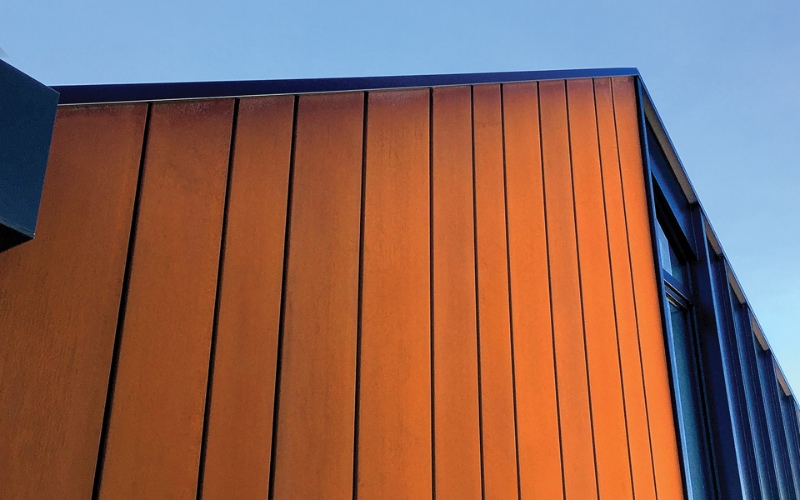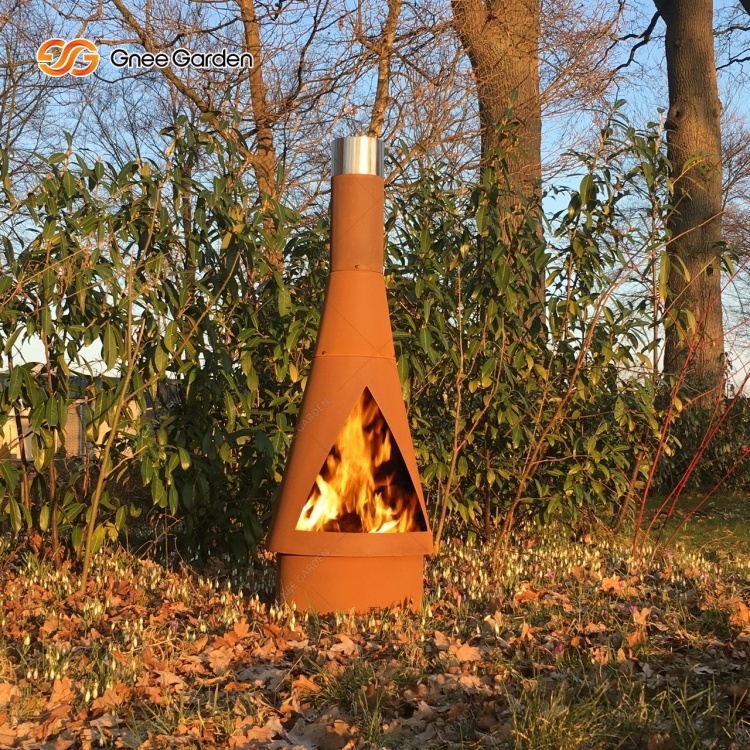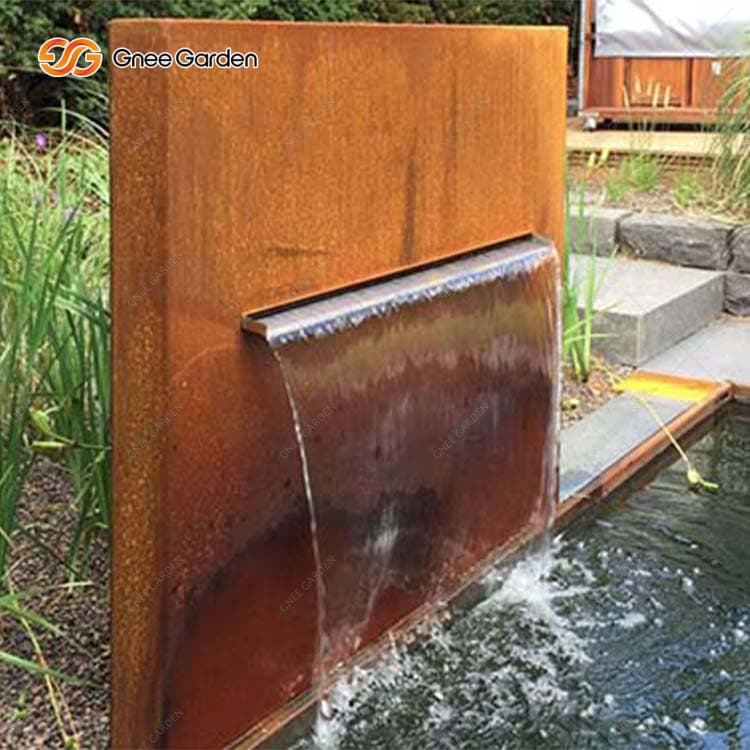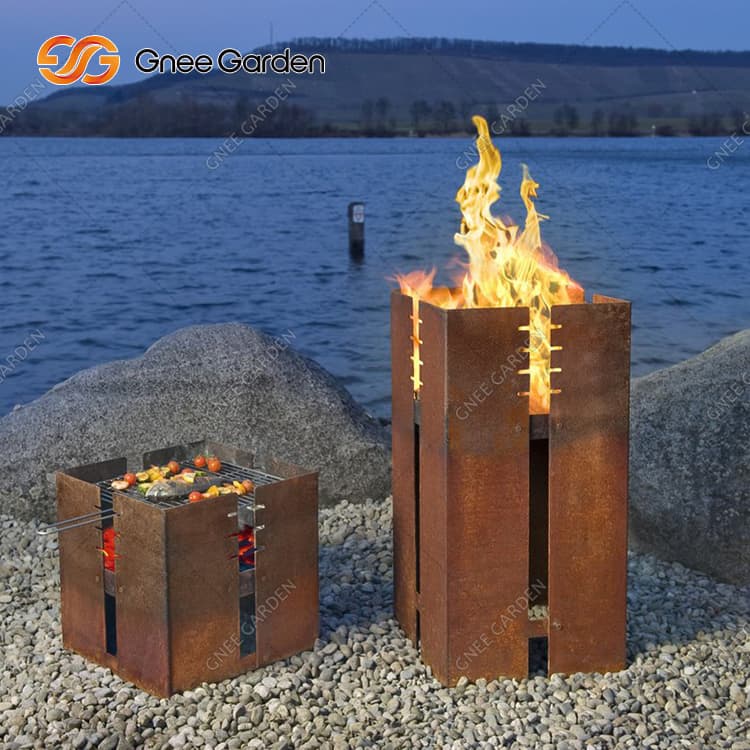Can Corten steel hold water?
Factors affecting the water-holding capacity of Corten steel
First and foremost, we must consider the formation of rust upon the surface of Corten steel. Rust can have a significant impact on its ability to hold water. While a certain degree of rust is desirable, for it lends Corten steel its characteristic appearance and forms a protective layer, an excess of rust can lead to unfortunate water leakage.
Furthermore, the thickness and composition of Corten steel cannot be overlooked. Thicker steel, it seems, tends to possess better water retention properties. And let us not forget the specific composition of the alloy itself, for it too can influence Corten steel’s performance in this regard.
Lastly, we must take into account the surface treatment bestowed upon Corten steel. This treatmentcan have a profound influence on its water-holding capacity. Certain coatings or sealants, when applied, can enhance Corten steel’s ability to retain water.

Pros and cons of using Corten steel for water-holding purposes
Now, let us consider the advantages that Corten steel presents when employed for the containment of water. It is a material of great durability, resistant to the ravages of corrosion, and possesses a unique aesthetic appeal. What is more, it requires but minimal maintenance and can withstand the harshest of environmental conditions.
However, we must also acknowledge the limitations and considerations that come with the use of Corten steel for water containment. Proper maintenance, it seems, is necessary to prevent excessive rusting. Furthermore, the initial cost of Corten steel may be higher when compared to other materials. And let us not forget that it may not be suitable for certain water-holding applications that require adherence to specific standards or regulations.
Best practices for maximizing water-holding capacity of Corten steel
Should one choose to employ Corten steel for water containment, it is of utmost importance to adhere to certain best practices. Regular maintenance is crucial in order to maximize its water-holding capacity. This entails the removal of any accumulated debris, the application of appropriate coatings or sealants, and the prompt addressing of any signs of excessive rust formation.
Furthermore, when designing structures or objects for water containment using Corten steel, one must take into account various factors. The shape, size, and reinforcement of the structure all play a role in optimizing the water-holding capacity and overall performance of Corten steel.
Alternative materials for water-holding applications
Whilst Corten steel may be a popular choice for water containment, it is not the sole option available to us. There are alternative materials that are worthy of consideration. Comparisons with other metals and alloys, such as stainless steel, aluminum, or galvanized steel, can aid in determining the most suitable option based on specific requirements.
And let us not forget that non-metal options also exist for water containment purposes. Materials such as concrete, fiberglass, or plastic each present their own advantages and limitations. By exploring these alternatives, one can be presented with a comprehensive range of choices for their water-holding needs.

Can Corten steel hold water?
Yes, Corten steel can hold water, but there are several factors that can influence its water-holding capacity.
Factors affecting the water-holding capacity of Corten steel
The formation of rust can impact Corten steel’s ability to hold water. While some rust is desirable for its protective layer, excessive rust can lead to water leakage. The thickness and composition of Corten steel also play a role in its water retention properties. Additionally, the surface treatment applied to Corten steel can enhance or hinder its water-holding capacity.
Pros and cons of using Corten steel for water-holding purposes
Corten steel is durable, resistant to corrosion, and has a unique aesthetic appeal. It requires minimal maintenance and can withstand harsh environmental conditions. However, proper maintenance is necessary to prevent excessive rusting, and the initial cost of Corten steel may be higher compared to other materials. It may also not be suitable for certain water-holding applications that require adherence to specific standards or regulations.
Best practices for maximizing water-holding capacity of Corten steel
Regular maintenance is crucial to maximize Corten steel’s water-holding capacity. This includes removing debris, applying appropriate coatings or sealants, and addressing excessive rust formation promptly. When designing structures or objects for water containment with Corten steel, factors such as shape, size, and reinforcement should be considered.
Alternative materials for water-holding applications
While Corten steel is a popular choice, there are alternative materials to consider. Comparisons with other metals and alloys like stainless steel, aluminum, or galvanized steel can help determine the most suitable option. Non-metal options such as concrete, fiberglass, or plastic also have their own advantages and limitations.






